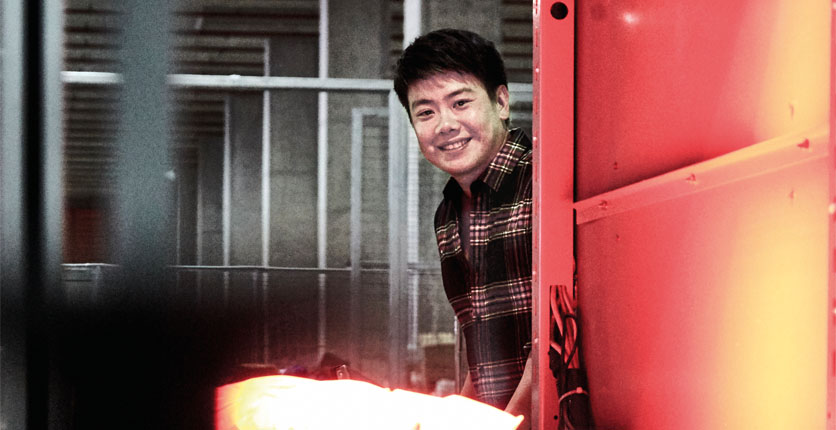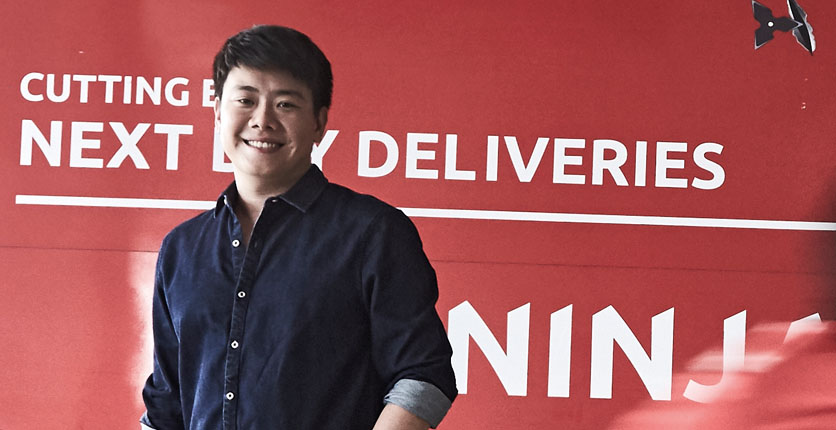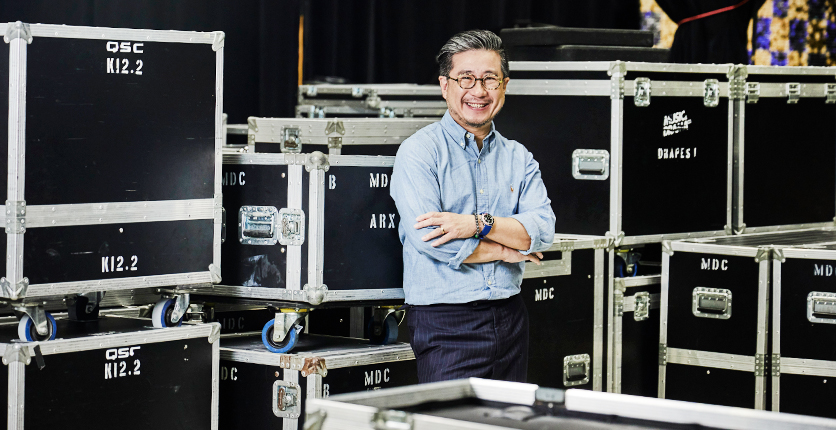For most Singaporean men who have served in the army, the term “ninja van” is one that brings back happy memories of that stealthy mobile snack vehicle that provides temporary relief from the rigours of outfield training. But for Lai Chang Wen, the term also represents his dreams to reshape the logistics scene in Southeast Asia using technology-enabled delivery systems.
The 30-year-old entrepreneur is today the CEO of Ninja Van, a startup that provides last-mile delivery solutions (think Uber, but for businesses). “During my military experience in Taiwan, ninja vans were food trucks that scoured the highest reaches of our training grounds in the mountains. This is in line with our vision of Ninja Van – a ninja that is within reach of every consumer in Southeast Asia,” said Lai of the decision to name his company after the iconic snack vendor.
“By combining our passion for harnessing cutting-edge technology solutions and our in-depth knowledge of e-commerce needs, we can ensure that logistics is a simple and seamless affair for our business partners and consumers. Just like real ninjas, we are dependable and deliver on our promises to them.”
Lai has always been a “big picture” person, saying that his childhood ambition was to become an astronaut so that he could see Earth from space. When he was older, visionaries such as tech magnate Elon Musk were among his role models. As such, he said he was eager to forge his own destiny and leverage technology in the pursuit of entrepreneurship.
Coming from a family of entrepreneurs also helped, as everyone is supportive of his ambitions, he added. Before setting up Ninja Van, he ran Marcella, a customisable fast fashion brand when he was still studying business and finance at Singapore Management University. Though the venture was unsuccessful, the experience gained was vital, as he learned how “old school” the delivery and tracking of goods by online retail businesses were.
He recalled that the process of delivering parcels was largely done manually, with multiple forms having to be filled and delivery orders being missed, resulting in customers not receiving their packages. Having also noticed that the online shopping scene in Southeast Asia was gaining traction, Lai and two other cofounders, Shaun Chong and Tan Bo Xian, set up Ninja Van in 2014. The startup did not take too long to take off, securing US$2.5 million in its Series A funding round in 2015.

A year later, the company bagged a whopping US$30 million in funding. Apart from Singapore, Ninja Van also currently operates in Malaysia, Vietnam, Thailand, Indonesia and the Philippines, servicing thousands of e-commerce clients that cater to more than 200 million consumers. Some of its clients in Singapore include Zalora, Love Bonito, Pedro and Challenger.
Lai attributes the company’s achievements to hiring the right people, being unafraid to go with one’s gut instinct, as well as keeping an open mind and listening to advice from others. He pointed out that assuming a leadership role during national service – he was a sergeant in 3rd Singapore Infantry Regiment – also taught him the importance of leading by example, which is crucial in his role as the boss of nearly 800 employees.
Looking ahead, he said the company would be introducing more products and services for its clients. He also suggested that emerging technology such as drones would be an “enabler” instead of disruptor for his business, while artificial intelligence could be vital in helping create a more seamless delivery experience for customers. But Ninja Van’s success was not served on a silver platter. Lai recalls how he and his co-founders had to endure 20-hour workdays in the initial stages. Apart from having to develop the technology and algorithms to improve the delivery process, the trio also had to perform menial tasks such as sorting parcels, delivering the goods and even cleaning the office toilet.
But Lai said that the hardships he and his co-founders had to endure were well worth it. “I think I have accomplished and matured more than I expected when I first started on this journey. But along the way, I have also realised that there are many more gaps to fill in terms of experience and knowledge,” he said.
“Having a learn-it-all attitude and a mind-half-full mentality definitely pushes me to keep going!” Of course it’s not all work and no play for startup entrepreneurs, if they can multi-task. Lai said that he plays golf with his friends, as the open greens help him to calm down and recollect his thoughts. He is also dating someone, though he is quick to lament that he does not have much of a work-life balance.
Despite the hardships, he has not a shred of regret over his career choice. “I live my life by minimising regret. I am aware that, to do anything well, one has to focus. I believe in being fully committed to an idea when I start on it, and will focus on it as long as it is viable. Starting other businesses is not on my mind,” he said.
“When the going gets tough, I believe in persevering and not giving up. Running a business means having to be resilient and tackling the curve balls that are thrown my way. Failure due to market conditions or wrong business decisions are acceptable; those due to laziness or distractions are not!”









